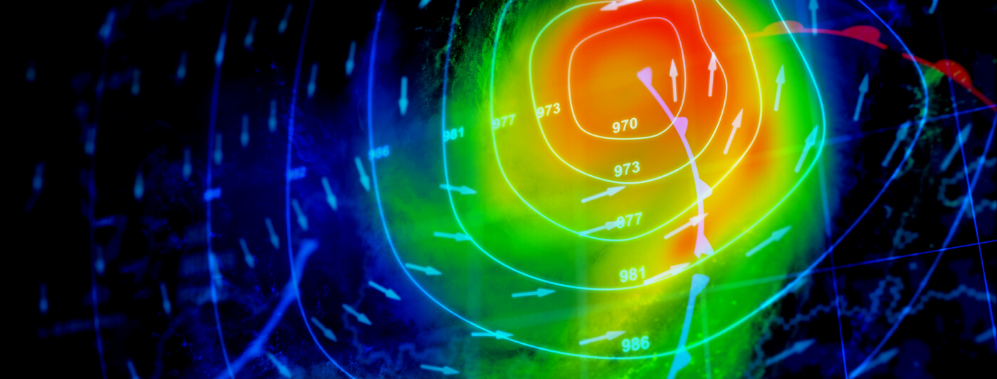
Helping society adapt to climate change
An NREN case study by CANARIE
Climate change and its long-term effects – droughts, heat waves, storms, and rising sea levels – are increasing the vulnerability of many living things in our planet’s ecosystem. Accurate climate simulations are integral to many decision makers, including government policy experts, forestry planners, and municipal engineers. Those who need to identify and implement adaptation strategies, rely in part on regional climate service centers like Ouranos to provide them with the latest science, models, and data from around the world.
Access to international climate research data
Montreal-based Ouranos is a climatology consortium that supports pure and applied research projects mainly in Québec and Canada, with a growing number of projects elsewhere. Obtaining the necessary data to support these projects requires high-performance access to international climate research centres. Since climate changes in one part of the world create effects around the planet, it is critical for researchers to have access to global data.
To enable this access, Ouranos counts on CANARIE for a critical, ultra-high-speed connection to the international research community. As the federal partner in Canada’s National Research and Education Network (NREN), CANARIE provides RISQ, its provincial partner in Quebec, with cross-provincial and international connectivity. Together, CANARIE, RISQ and their NREN partners enable Ouranos to communicate and share data with academic institutions and climate researchers, wherever they may be.
Massive amount of climate-model data
The data requirements of climate-change modelling are massive. While the desired output from a climate model may be relatively simple – perhaps the average regional temperature and precipitation several years into the future – the computations needed to simulate the environment generate a tremendous amount of data. Many variables are needed to mathematically forecast climate in the physical world – air pressure, cloud types and percentages, wind speed and direction, humidity, precipitation, land surface characteristics, river and ocean levels, phytoplankton population, ocean currents, sea ice coverage – the list continues. Those variables are computed for a grid of cells covering the planet for each time step, creating a huge dataset for each model that is run. Climate service providers typically combine the runs from many different models, each with varying starting conditions, to reduce uncertainty and create statistically robust outcomes. This further increases the volume of data. The result is petabytes of climate-model data that is shared and compared using the NREN.
What is the NREN?
The National Research and Education Network (NREN) is an essential collective of infrastructure, tools and people that bolsters Canadian leadership in research, education, and innovation. CANARIE and its thirteen provincial and territorial partners form Canada’s NREN. We connect Canada’s researchers, educators, and innovators to each other and to data, technology, and colleagues around the world.
Data critical to many disciplines
The climate research provided by Ouranos spans many disciplines. For Hydro Québec, Manitoba Hydro, Ontario Power Generation and Rio Tinto, Ouranos expertise helps them estimate the impacts of climate change on precipitation and melt patterns, which in turn allows hydropower utilities to secure our long-term energy supply. By helping understand changes to food webs, quantifying permafrost risks, and developing adaptation policies, Ouranos-supported research also allows Northern communities to increase their resilience to upcoming changes, protecting Inuit people and their heritage. And it helps many others prepare and adapt for climate change, including tourist-dependent regions, wildlife stewards, and public health officials. Beyond Canadian borders, the many partners of Ouranos include African nations that collaborate in producing research to anticipate changes in crop growth conditions, the European Bank for Reconstruction and Development, which helps develop climate and hydrological training for hydropower utilities in Tajikistan, and the Universidad Veracruzana in Mexico, which researches water management and environmental preservation.
Supporting society’s ability to adapt
Climate change is something that affects us all. To mitigate our risks, we need to know what we’re up against. The world-class climate science that Ouranos’s researchers pursue with their national and international collaborators helps society to better understand our transforming planet. CANARIE and its partners in Canada’s NREN are proud to deliver the critical infrastructure that enables these collaborations.

